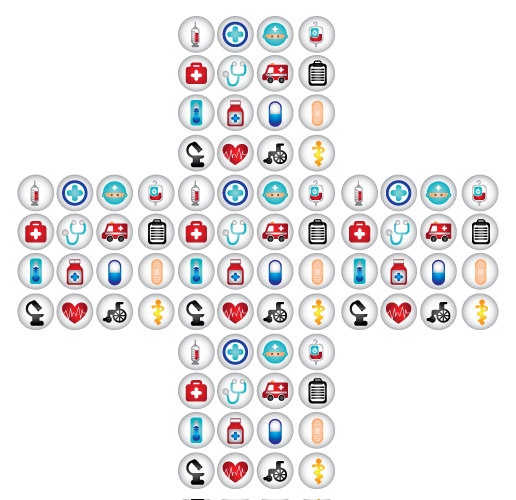Let EMRA help with the next step in your career
Growing up, summer's approach led to a multitude of emotions — excitement about a break from school; sleeping in; perhaps going on vacation; or fun at the pool, beach, camp, and so on. For medical students or residents, however, June and July can bring on an entirely different set of feelings.
For medical students, you may have anxiety as you enter a new year of education. Perhaps you're shifting from the classroom to the clinical setting. If you are in your clinical years, you may be getting ready to apply for an emergency medicine residency, or you might be making the huge transition to residency – both can be exciting and intimidating at the same time.
Residents experience a similar shift. Interns are thrown into the role they've been daydreaming about; junior residents become senior residents; and all across the board, roles and responsibilities advance. Senior residents may be trying to hone their skills while preparing to enter a fellowship or stepping into an attending role. For a large portion of grads, though, the ultimate shift is about to come – from resident-in-training to an independently practicing emergency physician.
Medical student resources
Preparation is essential when applying for a residency in emergency medicine, and you've likely already planned ahead for home and away rotations. A volume of resources is available at emra.org to help you shine while in the emergency department and prepare you for the months and years ahead. EMRA's Medical Student Survival Guide is available for FREE as a PDF download found under our publications tab (www.emra.org/publications/books), and there are many other educational and advising resources located on their own dedicated pages (www.emra.org/students/educational-resources, www.emra.org/students/advising-resources).
EMRA's “Reading Recommendations” page provides a wealth of information, including a proposed timeline of activities during medical school, letters of recommendation, residency applications, and interviews. This section of the website is really pertinent to all EMRA members, as it also provides phenomenal resources regarding wellness and career planning. Check it out at www.emra.org/students/education/reading-recommendations.
Resident resources
July brings long, hot days, celebratory BBQs – and the new batch of interns. While actually putting your medical degree to work is an exciting step up in your career, it comes with a certain level of trepidation – and that doesn't usually go away after your first shift. Fortunately, everyone has been there, and EMRA has many educational resources to help you both during and after your clinical duties. Check out emra.org to take advantage of the books, blogs, apps, reference cards, and other resources, many of which are FREE with your membership. Also keep an eye out for your EMRA Welcome Kit, which provides lots of supplies and more information to get you started.
For the junior resident moving into a more senior role, you likely have different concerns. Perhaps you are now responsible for teaching medical students or junior residents. If that's the case, then you should check out the FREE PDF download Resident as Educator handbook on EMRA's website (www.emra.org/publications/books). Maybe you're looking to get more involved and find your niche within emergency medicine. If so, head to the website to check out EMRA's Committees and Divisions, as well as many other opportunities.
If you're entering your last year of residency, as crazy as it sounds, you are likely already thinking about your upcoming job search. The organization offers many career-planning resources (www.emra.org/resources/career-planning), as well as links to EM Career Central, which provides current, searchable job listings. It's not too early to start spiffing up your CV and making connections; this will help you enjoy more of the remainder of your time in training.
Life after residency
But what if you already have a fellowship or job lined up, and you started the countdown to your first day of work long ago? What does EMRA have to offer you? Plenty!
First of all, you're not quite done yet. You still have to take your boards — and the earlier the better (data shows higher pass rates the earlier you take the exam). Clearly, this is easier said than done, but EMRA has resources available online to help you navigate the process and determine the best study plan for you (www.emra.org/resources/preparing-for-the-boards).
So now that you're done with residency, you're done with EMRA, right? Wrong! You should strongly consider becoming an EMRA alumni member. This portion of our membership is constantly growing – your $50 dues go a long way. Check out www.emra.org/benefits/alumni to learn more.
For most of you residents preparing for graduation, it is likely that your programs have been renewing and paying for your professional society memberships. Now that you are entering the world of work, you may be responsible for these dues directly, or through coordination with your group. Hopefully you have taken full advantage of your professional society memberships as a resident, and recognize the value of continuing them throughout your career. If not, or if you hesitate to hand over your well-deserved compensation for a higher-priced attending membership — I encourage you to evaluate all that professional society membership has to offer. It certainly varies in what people find most attractive — educational meetings, publications, advocacy, camaraderie, representation — but chances are there is an organization that is a good fit for you, and will offer a great return on your investment.
While daunting, the transitions we make in our medical careers are important and necessary steps; and we are there with you on this exciting journey. EMRA has a multitude of resources to help you navigate your way — hopefully making the process a bit less stressful, and freeing up some time for summer fun.



